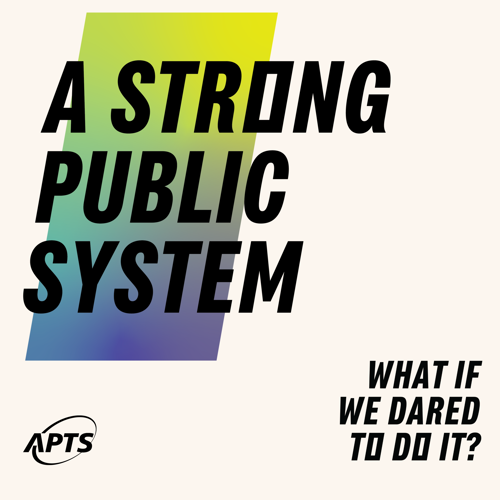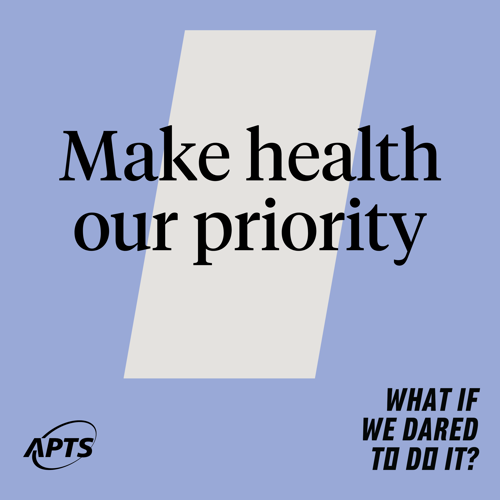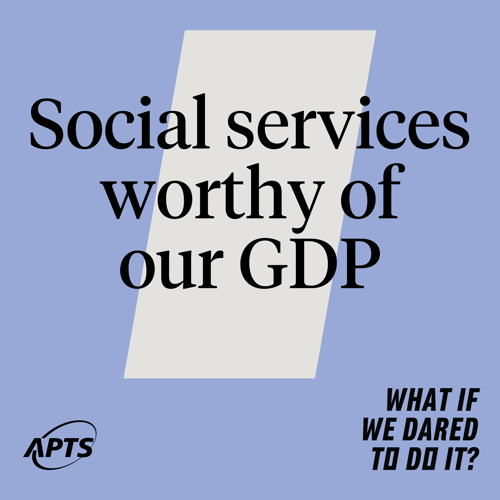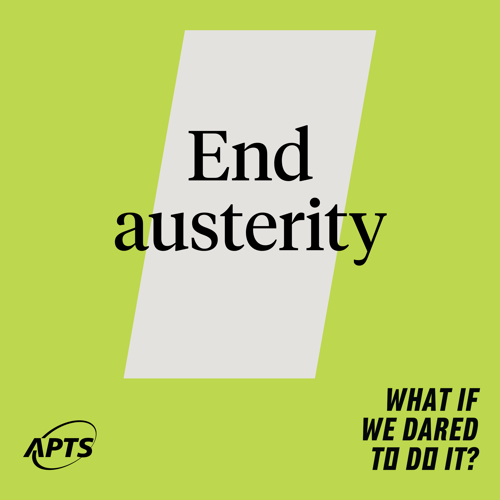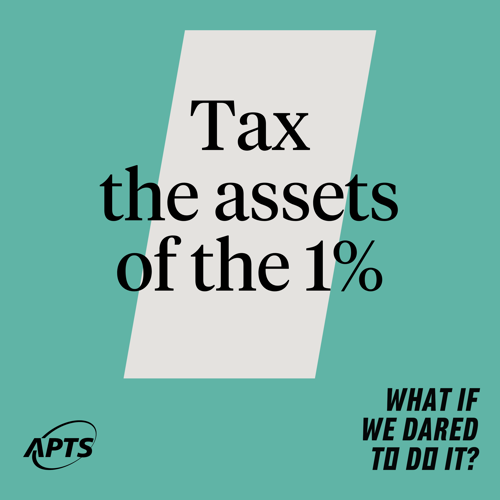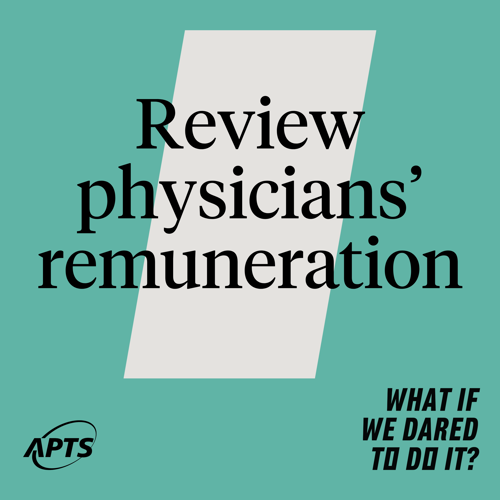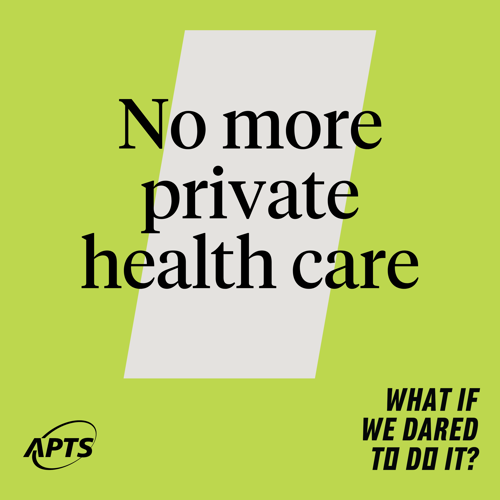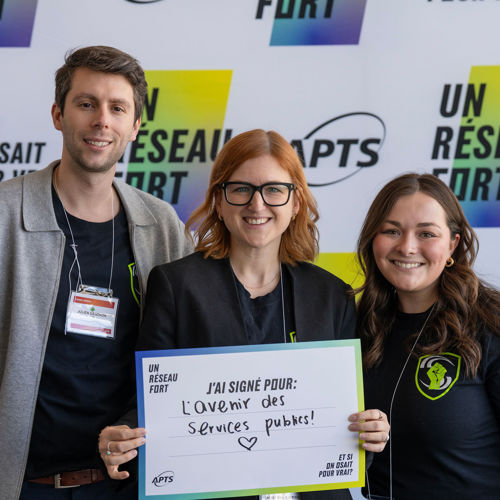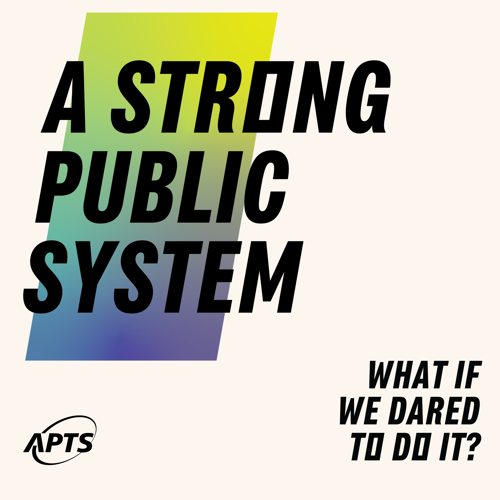Let’s face it: our health and social services system is not in good shape. But we at the APTS believe that there is nothing inevitable about this situation. In fact, we think that a strong public system providing high-quality services is entirely possible: all we need to do is make it an undisputed priority and give it appropriate funding. Discover how!
A BUDGETARY SHIELD
This protective mechanism would stabilize funding for the system by guaranteeing sufficient resources to provide quality care and services, regardless of economic volatility. Let’s dare to make health and social services an unshakeable priority!
HOW TO FUND IT
Through bold fiscal measures
- Taxing the assets of the richest 1%, for example, could bring in $4 billion a year. If labour were available, this tidy sum would make it possible to double the number of professionals and technicians in the public system!
By reviewing physicians’ remuneration
- By incorporating, physicians can reduce their tax rate from 50% to 20%, or even 12% — an injustice that we all pay for! Combined with a reform in their job status and remuneration, ending physicians’ incorporation would inject $1 billion into health and social services.
By deprivatizing the system
- An energetic but gradual deprivatization of health and social services is critical. Think of the care and services the public system could offer if the 10, 15, 20, 30 cents the government assigns to corporate profits out of every dollar they spend were brought back into the public system!






A strong public system: what if we dared to do it?
Dear Mr. Legault, Mr. Girard and Mr. Dubé,
Here in Québec, we’re proud of being progressive. We’re in favour of social justice, science, and taking care of the environment; we’re humanists and feminists. And there’s no denying that we look pretty good, especially in comparison with our neighbours down south. But the paradox is that for decades, we’ve been tolerating the gradual yet starkly obvious decline of our public services – which are supposedly one of our core social values.
Our health and social services system is a flagrant example of this situation. Underfunded and constantly disrupted by ill-conceived reforms, it is currently in very bad shape. Emergency departments are overflowing, waiting lists for mental health care keep getting longer, and surgeries are often delayed for a variety of reasons including insufficient resources in technical medical departments. As usual, the most vulnerable groups – low-income families, older people, children under the care of youth protection, people with a disability or an autism spectrum disorder — are disproportionately affected.
There is nothing inevitable about this situation. What if we stopped stumbling from one reform to the next, watching the system’s funding go up and down like a yo-yo, and always relying on the private sector? What if we decided, once and for all, to give ourselves a strong public system? What if we actually made our health a priority? What if we promised to give ourselves social services worthy of our GDP? In short: what if we dared to do it? There’s nothing impossible about this. It’s a matter of choice.
Over the next weeks, you’ll be defining the amounts allotted to health and social services in your 2025-2026 budget. We urge you to choose brave and innovative solutions. First among these would be to create a budgetary shield for health and social services that would stabilize funding by guaranteeing sufficient resources to provide quality care and services, regardless of economic volatility.
Once the shield is in place, it will obviously be necessary to find the money to pay for it. To do so, you have a wide range of options, including the adoption of bold fiscal measures. Taxing the assets of the richest 1%, for instance, could bring in some $4 billion a year. In a hypothetical world where jobs in health and social services have become attractive again thanks to appropriate policies, this tidy sum would make it possible – get this – to double the number of professionals and technicians working for the public system.
Ending physicians’ incorporation would be another way of increasing our government’s financial resources, and it would also enable us to address an injustice that is truly indecent if we consider their level of income. A physician is not a joint-stock company: there is absolutely no reason why they should be taxed at 12% rather than 50% like any other taxpayer with a comparable income. Physicians’ job status and remuneration should also be redefined. Taken together, these measures would inject a highly welcome $1 billion into our health and social services. And finally, we need a strategy to deprivatize our system. This strategy must be energetic and gradual, and it must be put into place immediately. If we make the required investments, it will take no more than five years to bring amounts spent on services provided by the private sector back to their 1979 baseline level. Think of the care and services we could offer if the 10, 15, 20, or 30 cents assigned to corporate profits out of every dollar our government spends were brought back into the public system! Let’s not pretend the private sector complements the public system. The truth is very different: our public system is being cannibalized. Stop being complicit – it’s the least you can do.
There are many possible solutions, and those who claim otherwise are waiting for just one thing: they want us to give up on our basic right to health and well-being so that they can make a killing. A strong public system is possible – if we make it a priority and stop implementing tiny, half-hearted measures; if political courage is found; if we stop sacrificing the common good to partisan or private interests; and if public system employees are finally given the acknowledgement they deserve, the trust that their expertise ought to compel, and the recognition that would match their determination.
In our fight for a strong public system, we have little to lose and everything to gain. What if we dared to do it?

